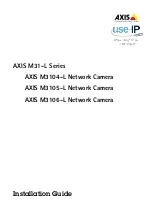
Interface Configuration
7710 SR OS Interface Configuration Guide
Page 37
Multilink Point-to-Point Protocol (MLPPP)
Multilink point-to-point protocol is defined in the IETF RFC 1990,
The PPP Multilink Protocol
(MP)
, and provides a way to distribute data across multiple links within an MLPPP bundle to
achieve high bandwidth. MLPPP allows for a single frame to be fragmented and transmitted
across multiple links. This allows for lower latency and also allows for a higher maximum receive
unit (MRU).
MP is negotiated during the initial LCP option negotiations of a standard PPP session. A router
indicates to its peer that it is willing to perform MLPPP by sending the MP option as part of the
initial LCP option negotiation. This negotiation indicates the following:
1.
The system offering the option is capable of combining multiple physical links into one
logical link;
2.
The system is capable of receiving upper layer protocol data units (PDU) fragmented
using the MP header and reassembling the fragments back into the original PDU for
processing;
3.
The system is capable of receiving PDUs of size N octets where N is specified as part of
the option even if N is larger than the maximum receive unit (MRU) for a single physical
link.
Once MLPPP has been successfully negotiated, the sending system is free to send PDUs
encapsulated and/or fragmented with the MP header.
MP introduces a new protocol type with a protocol ID (PID) of Ox003d.
show the MLPPP fragment frame structure. Framing to indicate the beginning and end of the
encapsulation is the same as that used by PPP, and described in PPP in HDLC-like framing [RFC
1662]. MP frames use the same HDLC address and control pair value as PPP, namely: Address -
OxFF and Control - Ox03. The two octet protocol field is also structured the same as in PPP
encapsulation. A summary of the MP encapsulation is shown in
.
Figure 1: MLPPP 24-bit Fragment Format
1
1
0 1 2 3 4 5 6 7 8 9
1
0
1
2
1
3
1
4
1
5
1
7
1
6
1
8
1
9
2
0
2
1
2
3
2
2
2
4
2
5
2
6
2
7
2
9
2
8
3
0
3
1
Control 0x03
PID 0x003d
Address 0xff
Sequence
B
E
Fragment Data...
FCS
Fragment Data
Summary of Contents for 7710 SR OS
Page 6: ...Page 6 7710 SR OS Interface Configuration Guide Table of Contents...
Page 8: ...Page 8 7710 SR OS Interface Configuration Guide List of Tables...
Page 10: ...Page 10 7710 SR OS Interface Configuration Guide List of Figures...
Page 14: ...Preface Page 14 7710 SR OS Interface Configuration Guide...
Page 16: ...Getting Started Page 16 7710 SR OS Interface Configuration Guide...
Page 100: ...Configuration Process Overview Page 100 7710 SR OS Interface Configuration Guide...
Page 142: ...Service Management Tasks Page 142 7710 SR OS Interface Configuration Guide...
Page 428: ...Debug Commands Page 428 7710 SR OS Interface Configuration Guide...
Page 434: ...Standards and Protocols Page 434 Standards and Protocols...
Page 436: ...Page 436 7710 SR OS Interface Configuration Guide...
















































